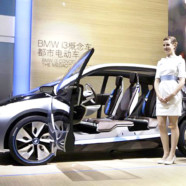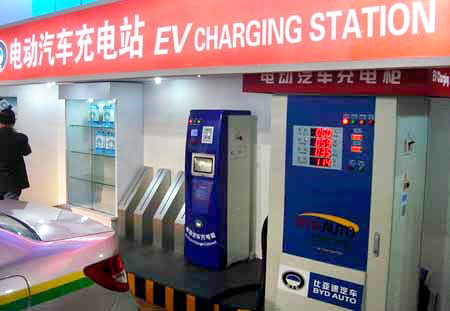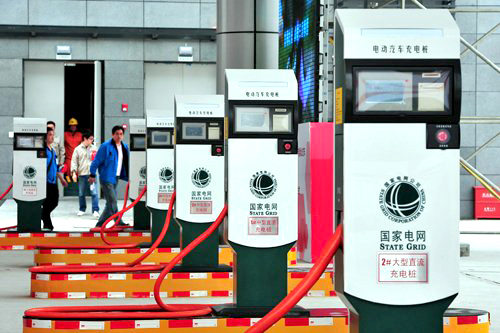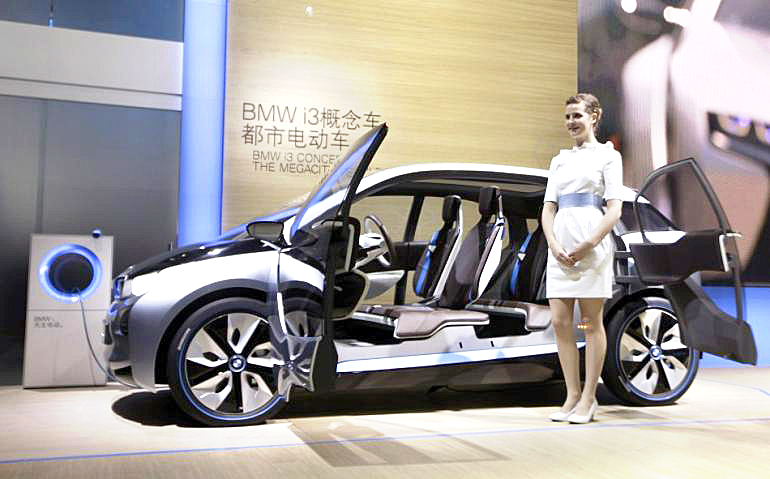China Electric Vehicle
China Weighs $16 Billion Car-Charging Fund.
China is considering providing as much as 100 billion yuan ($16 billion) in government funding to build electric-vehicle charging facilities and spur demand for clean cars, according to two people familiar with the matter.
The policy will be announced soon, said the people, who asked not to be named because the discussions are private. The people declined to provide further details of the plan such as how long the program would last or whether the chargers would be compatible with cars made by Tesla Motors Inc.
Increased state funding would be a tailwind for car-makers coping with consumer concerns over the price, reliability and convenience of electric vehicles. It would also build on the tax breaks announced by China, the world’s biggest carbon emitter, to fight pollution and cultivate its local EV industry, which includes BYD Co. and Kandi Technologies Group Inc.
“Charging infrastructure and EV growth is a chicken-and-egg situation,” said Ashvin Chotai, managing director of researcher Intelligence Automotive Asia. “It’s got to be a gradual process to scale up both EV sales as well as charging infrastructure. EVs are still not very attractive when compared with conventional-powered cars.”
Two calls to the news office in the Ministry of Finance went unanswered today. Tesla’s China spokeswoman Peggy Yang didn’t immediately reply to an e-mail seeking comment.
BYD rose as much as 5.3 percent in Hong Kong trading. Charging equipment maker Shanghai Potevio Co. climbed as much as 3.9 percent and Guangdong Nanyang Cable Group Holding Co. advanced as much as 2.7 percent. Kandi climbed 4.5 percent yesterday to $19.09.
More Competition
Among recent government initiatives, China will exempt new-energy vehicles — defined as electric cars, plug-in hybrids and fuel-cell vehicles — from a purchase tax starting next month, and has ordered government departments to buy such vehicles for their official fleets.
Supporting a strategic and emerging industry like new-energy vehicles is a “win-win” for industrial development and environmental protection, the central government said last month in the statement announcing the waiver of the purchase tax. Developing new-energy autos is important for spurring innovation, promoting energy savings and reductions in emissions, and will help to drive domestic demand and nurture new avenues of growth, according to the notice.
The government is also considering allowing non-carmakers to manufacture electric vehicles to foster more competition, the China Automotive Technology and Research Center, which helped draft the new initiative, said in June. That would pave the way for the likes of Wanxiang Group Corp., the Chinese auto-parts maker that owns Fisker Automotive, to build electric cars in the country.
Increasing Benefits
China’s central government last month set a target for electric cars to make up at least 30 percent of government vehicle purchases by 2016. The ratio will be raised beyond 2016, when local provinces are required to meet the target.
While sales of electric vehicles in China have lagged behind government targets, BYD, the electric automaker partially owned by Warren Buffett’s Berkshire Hathaway Inc., earlier this month cited favorable government policies for helping the company’s new-energy vehicle sales to jump sixfold during the first half.
The government has recently introduced “unprecedented” beneficial policies for EVs, spurred by concerns including energy security and pollution, BYD Chairman Wang Chuanfu said yesterday. There are also a lot of obstacles, among them charging infrastructure, he said in a briefing in Shenzhen to unveil plans for Denza, the joint electric car brand between BYD and Daimler AG, whose sales will begin next month in Beijing, Shanghai and Shenzhen.
Bayerische Motoren Werke AG, which plans to sell its electric i3 city car in China this year, has predicted that the country will become the world’s largest market for electric vehicles within five years as more charging infrastructure is built and the government promotes cleaner cars, Karsten Engel, BMW’s China head, said in May.
Source: Tian Ying, Steven Yang, Young-Sam Cho, Chua Kong Ho / Bloomberg




